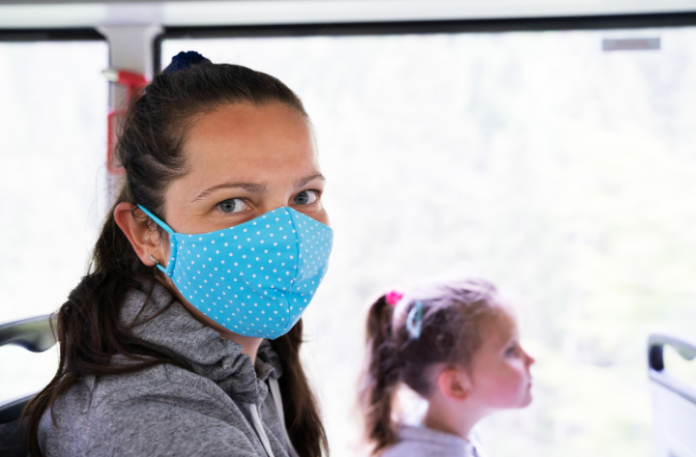In 2020 many of us started paying a lot more attention to washing our hands, staying home, and practising safe physical distancing to avoid the spread of germs. It is likely that in stopping the spread of Covid-19, we were also able to stop the spread of other illness such as colds and the flu. Because it is still a long way to go before Covid-19 elimination, the tips below can help ensure you are looking after yourself and others in the most effective ways possible.
Wear a mask
In Sydney, it is now compulsory to wear a mask on public transport, in places of worship and in beauty salons. It is also advised in other public indoor settings such as shopping centres. Make sure the mask covers both your nose and mouth, and avoid touching your face when wearing one. Brushing your teeth or chewing gum can make wearing a mask more pleasant. Masks with wire nose bridges can help stop glasses from fogging up, or masks can be taped down using tape safe for use on skin.
Wash your hands
Use soap and water, washing your hands up to your wrists, going in multiple directions (eg. between the fingers, pay attention to the thumbs). For a thorough wash, wash for at least 20 seconds (or two rounds of singing “Happy Birthday” in your head). For a more comprehensive guide on how to wash your hands, see the NSW health website.
Take care of your wellbeing
Isolation, changing requirements, and uncertainty are all very stressful. Feeling down or worried is an understandable feeling, but if you are finding that you are feeling sad, anxious, or depressed for longer than two weeks, or if it is getting in the way of doing your everyday activities, it is a good idea to talk to your doctor.
Try to look after your wellbeing by staying in contact with friends and/or family, getting some exercise most days, and setting aside time to do things that you enjoy such as reading or gardening. Constantly checking the news and social media can contribute to increased feelings of stress, so pay attention to this and cut back if it is making you more worried than informed.
Use reputable sources
There are a lot of websites and news sources that all want to comment on Covid-19. However, without being properly informed by experts, this commentary can just create extra “noise” that distracts from important government and health authority advice. In Sydney, the best sources of information are NSW Health and Australian Government Department of Health, as well as advice from the World Health Organisation (WHO). If you need free health advice, healthdirect provides information, symptom checks, and can help direct you if you are unsure you should be seeking medical attention.





